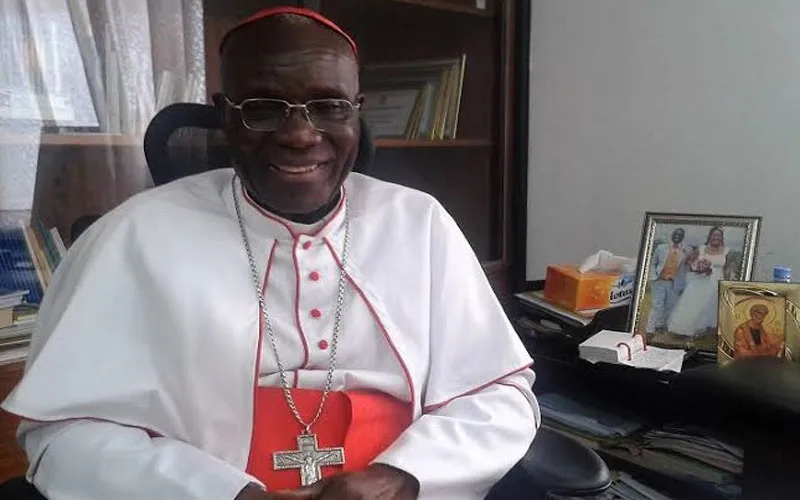Abidjan, 02 January, 2020 / 9:00 pm (ACI Africa).
As Catholic across the globe reflected on Pope Francis’ message for the 53rd World day of Peace marked Wednesday, January 1, 2020, an African Cardinal applied the Holy Father’s text to the situation of his country, recalled a decade-old “wounds which are struggling to heal” and called on his compatriots to take note of the Pontiff’s description of peace as “a great and precious value, the object of our hope and the aspiration of the entire human family.”
The Holy Father’s message published December 8, 2019 was titled, “Peace, a path of hope: dialogue, reconciliation, and ecological conversion.”
Starting off with the Holy Father’s reflection about “terrible ordeals of civil and international conflicts” affecting many nations of the world so that “our human community bears, in its memory and its flesh, the scars of ever more devastating wars and conflicts that affect especially the poor and the vulnerable, the Metropolitan Archbishop of Abidjan in Ivory Coast, Jean Pierre Cardinal Kutwa called to mind the political crisis of his West African country a decade ago.
“About violence which marks body and soul for a long time, as well as memory, and far from the desire to open the wounds which are struggling to heal, must we remember that the memory of the recent post-electoral crisis of 2010 with its share of dead, wounded, displaced, prisoners, exiles, destroyed property… is still alive in the hearts of many of our fellow citizens who I would like to bet, would give everything, in order to know a stable and lasting peace, to go about their occupations serenely!” Cardinal Kutwa remarked referencing the 2010-2011 Ivory Coast political crisis, which started after the country’s President since 2000, Laurent Gbagbo was declared the winner of the 2010 election.
Recalling memories of the violence that characterized the crisis and reflecting on the message of Pope Francis for World Peace Day, the Ivorian Cardinal considered it urgent for his compatriots “to give signs that go in the direction of appeasement and living together,” particularly by journeying “together for the creation of a peaceful electoral environment.”








